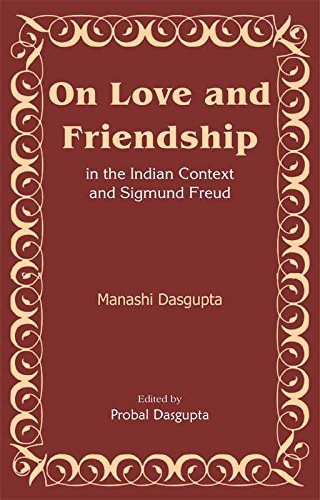On Love and Friendship in the Indian Context and Sigmund Freud
On Love and Friendship in the Indian Context and Sigmund Freud is backordered and will ship as soon as it is back in stock.
Couldn't load pickup availability
Genuine Products Guarantee
Genuine Products Guarantee
We guarantee 100% genuine products, and if proven otherwise, we will compensate you with 10 times the product's cost.
Delivery and Shipping
Delivery and Shipping
Products are generally ready for dispatch within 1 day and typically reach you in 3 to 5 days.
Book Detail:
- Author: Manashi Dasgupta
- Brand: D.K. Printworld Pvt. Ltd.
- Edition: First Edition
- Binding: Hardcover
- Number of Pages: 149
- Release Date: 01-09-2015
- EAN: 9788124608227
- Package Dimensions: 9.1 x 6.6 x 1.1 inches
- Languages: English
Description: This book explores the crucial role of friendship in fostering a democratic environment, particularly by encouraging open, accountable discussions among adults. It emphasizes an anti-hierarchical approach to democracy and presents friendship as an institutional format that can exist outside of patriarchal structures. The author uses an interdisciplinary approach, incorporating philosophy, literary/historical analysis, psychological theory, and fieldwork, to examine the power of informal conversations between friends. These conversations, which blend lightheartedness with seriousness, provide a unique space for personal accountability and the exploration of complex questions.
The study contends that friendships offer a space where personal maturity can develop, offering a nurturing environment far beyond what formal institutions like academia can support. The book argues that friendship functions as a metaproject—a space where projects are incubated. The author critiques the Freudian view that reduces acts of friendship to sublimated expressions of eros, suggesting that this view conflates the origins and validity of friendship while neglecting its essential metaproject nature.
This India-focused study provides valuable insights into the potential of friendship as a foundational element of democratic practice and personal growth. It is an essential read for those interested in the intersection of philosophy, psychology, and social theory.





